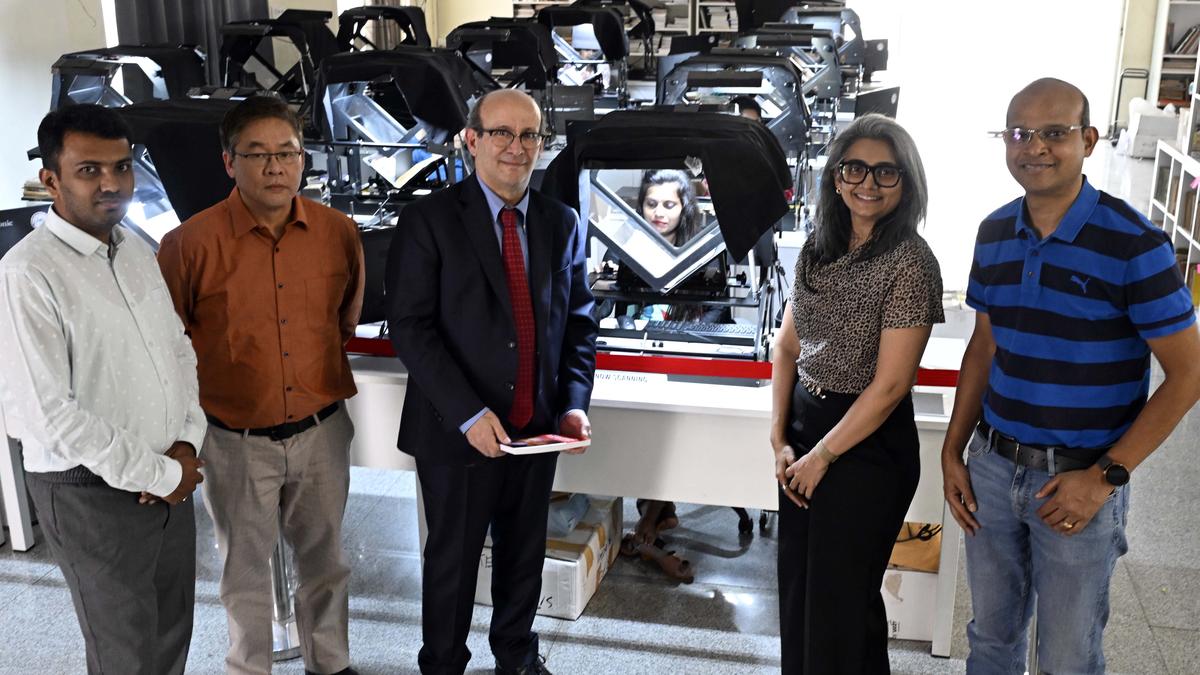
Servants of Knowledge digitises over 33,000 books in NLSIU library
The Hindu
Servants of Knowledge (SoK), a non-profit organisation working towards creating free and universal access to public data, has completed the digitisation of over 33,000 books in the National Law School of India University, Bengaluru.
Servants of Knowledge (SoK), a non-profit organisation working towards creating free and universal access to public data, has completed the digitisation of over 33,000 books in the National Law School of India University, Bengaluru. It has also created a digitised database of law books and legal resources for visually-challenged students, which will be available at Gandhi Bhavan in Bengaluru.
Both the resources, handed over on Friday, are free and accessible to law students and researchers. However, access is carefully controlled to ensure that only those students who want the reference material as part of their course work get them. They are not universally available online due to copyright and other legal restrictions. These offline digital libraries were launched in Bengaluru on Friday.
Carl Malamud, founder and honorary secretary, SoK, told The Hindu that a team of 10 trained archivists worked on the NLSIU library for three years to digitise 33,149 books and some magazines and journals. The books were digitised and made searchable through Optical Character Recognition technology. The project was launched by Vice-Chancellor Sudhir Krishnaswamy three years ago.
“A computer containing all this material was donated to the NLSIU. This will be used by the librarians in the institute. Whenever a student needs a book or material, the librarian will find it and give it to the student in an online format,” he said. It will be manned by a trained librarian so as to be careful about copyright issues.
On the project for the visually-challenged students, Mr. Malamud said that SoK had donated funds to the organisation Increasing Diversity by Increasing Access (IDIA) to help their efforts towards accessibility. “IDIA utilised our monetary contribution to hire a research resource person to interact with blind law students. The computer with material will stay at Gandhi Bhavan. We will train their resource person on Intellectual Property law, on how to do research, and in the technology involved in archiving. When a visually-challenged student needs a book, the resource person will find it and turn it into a suitable format. They can be in Word, Braille or DAISY (Digital Accessible Information System) formats,” he said.
Lawrence Liang, professor of law at Dr. B.R. Ambedkar University, New Delhi, who has been associated with SoK for several years, said that this would address issues of lack of accessibility to the deprived and disabled.
“Access to law hinges on two things – access to the legal institutions like courts and to legal knowledge. In fact, it remains the biggest hindrance in the process of legal remedies. We have to deal with several things like the apprehension that law is a technical field and that legal language is not easily understood and face the challenge of producing quality lawyers from outside of elite law schools as the state of libraries is very poor in such institutions. They tend to have outdated books, and fewer international publications. For the visually-challenged law students, it is next to impossible to get quality material. Efforts such these will help them greatly,’‘ Prof. Liang said.

University of North Carolina System explores feasibility of setting up extension centre in Amaravati
APSCHE and University of North Carolina System explore collaboration opportunities for setting up extension centre in Amaravati.












